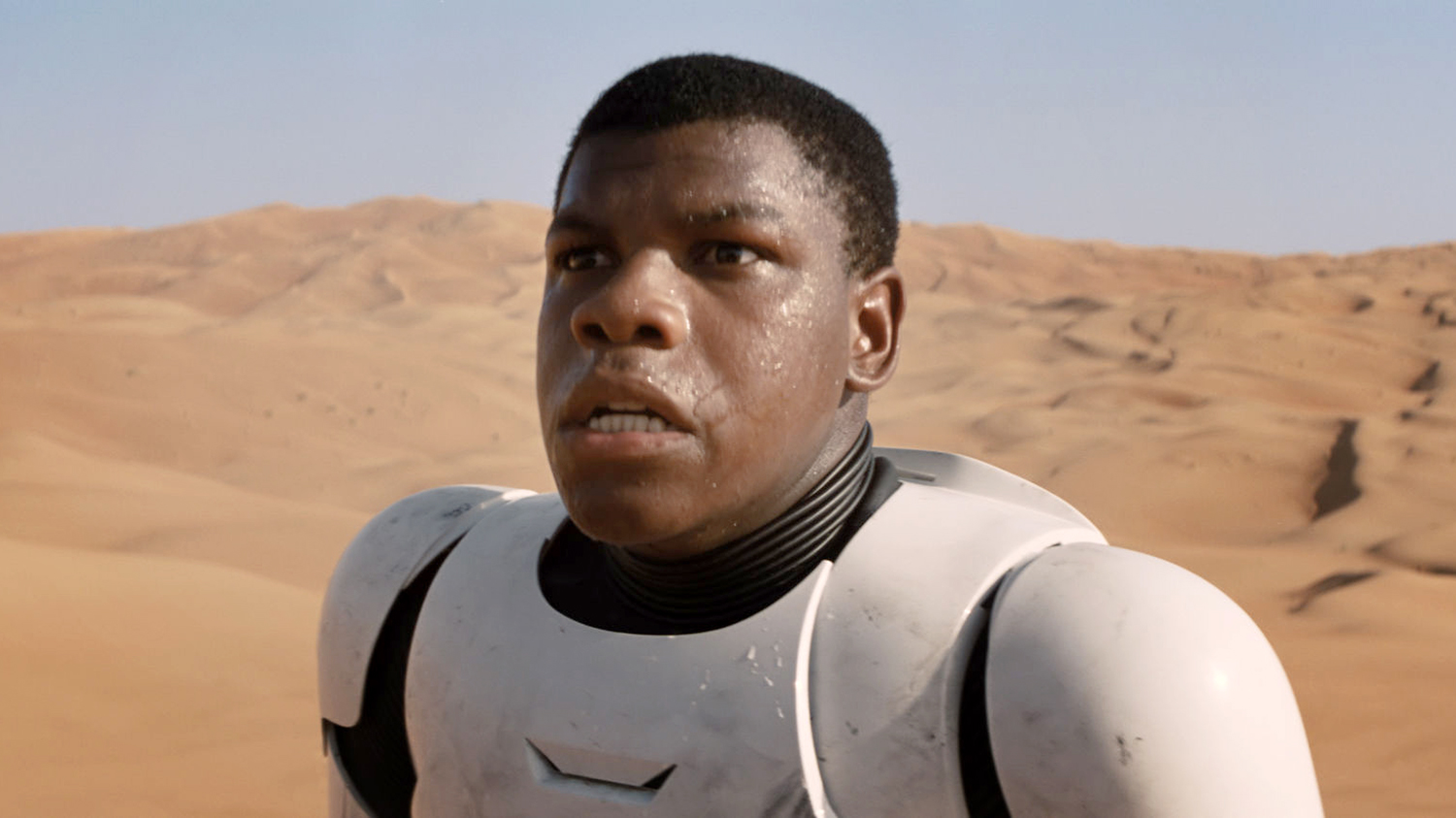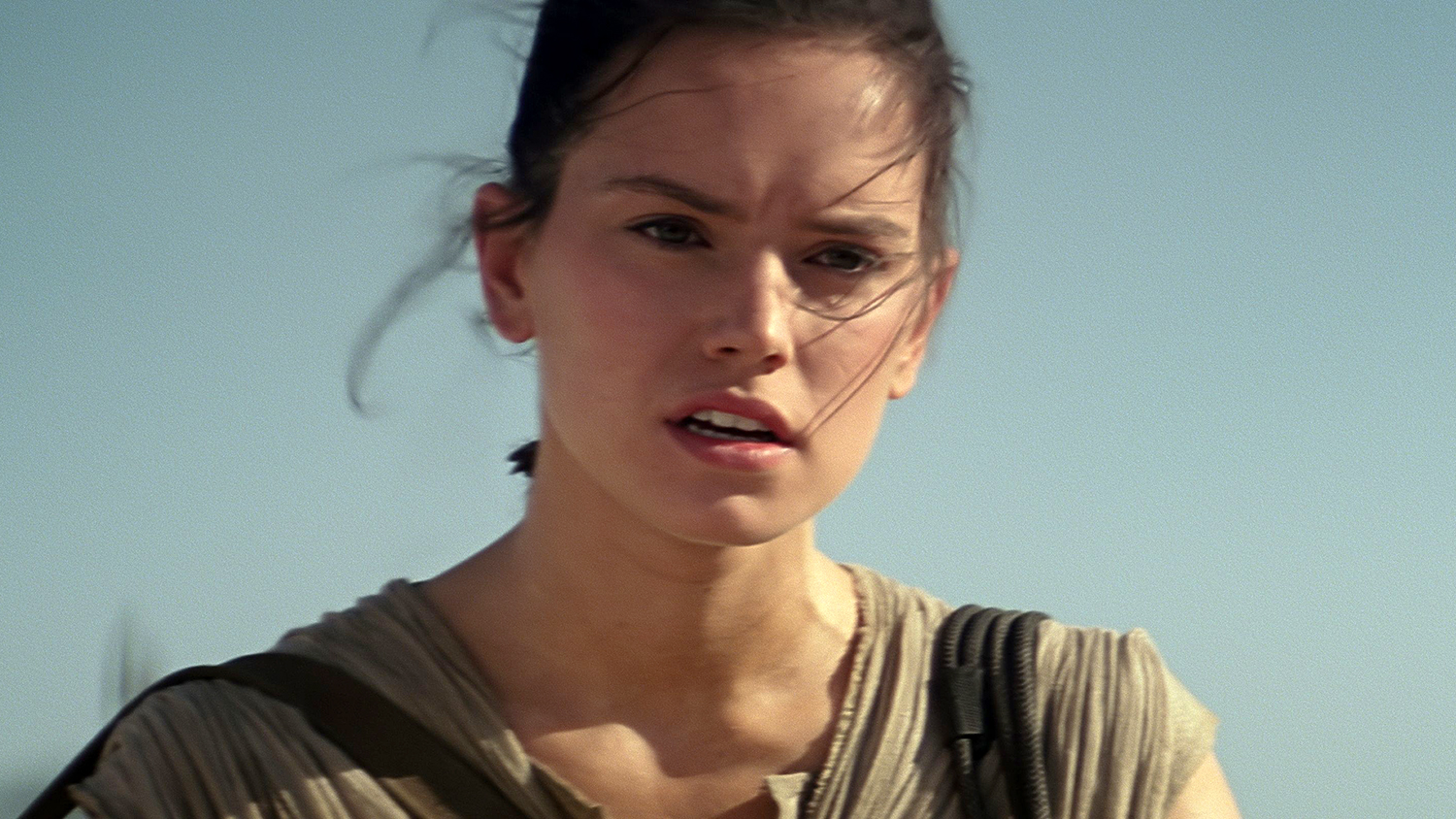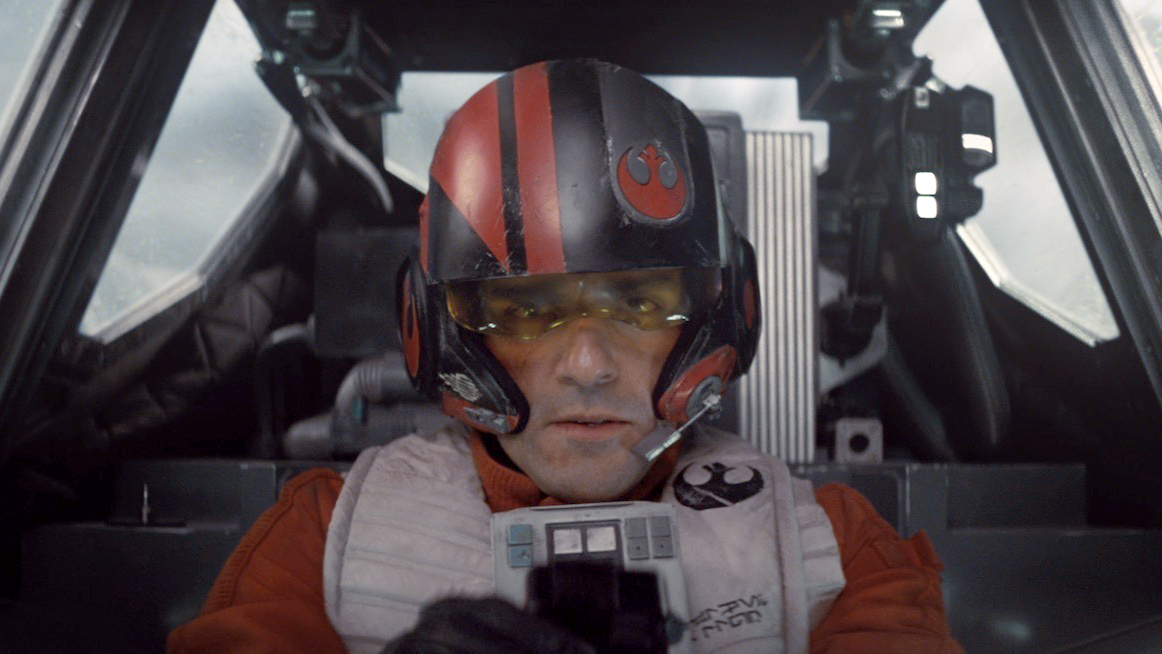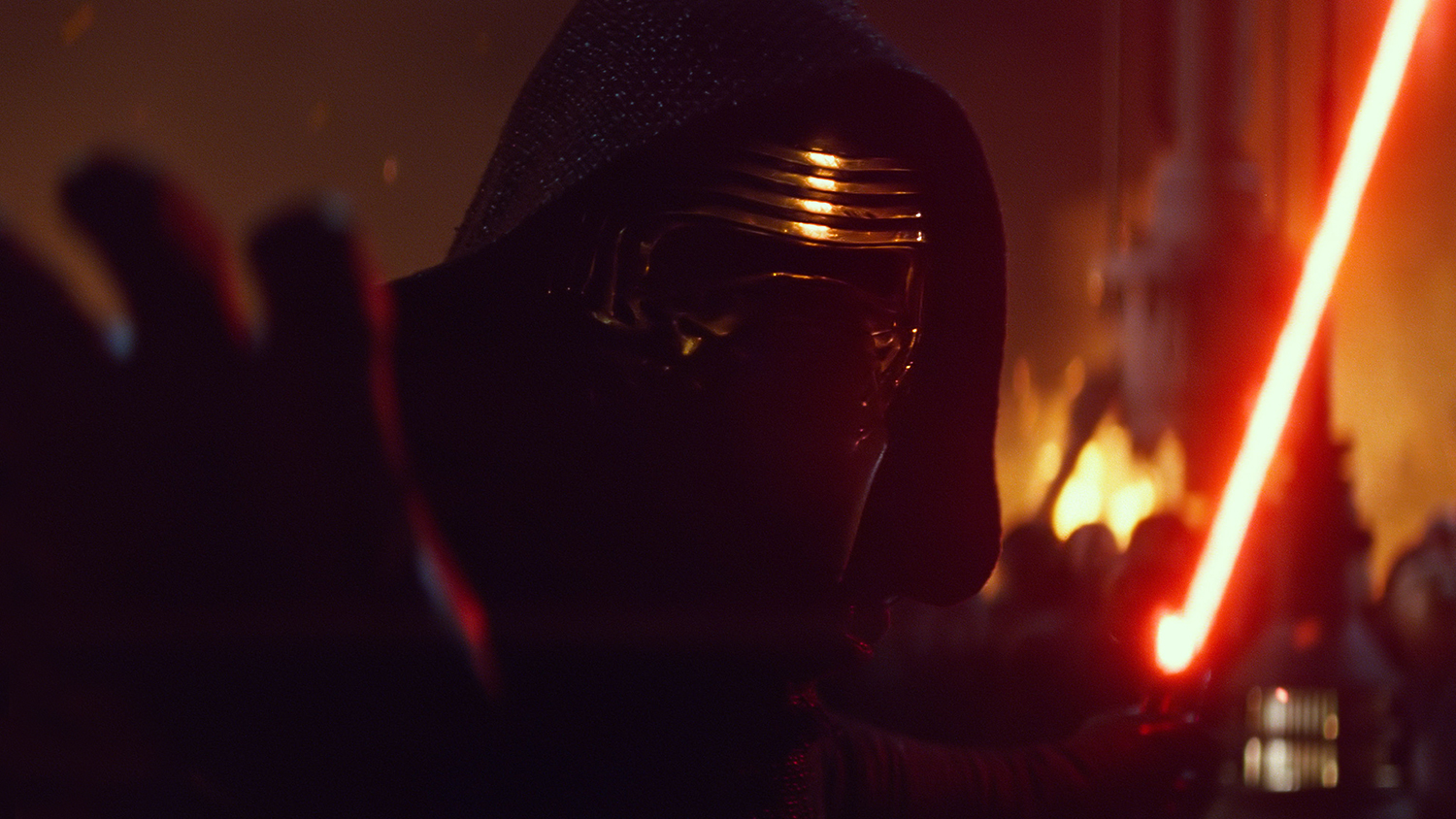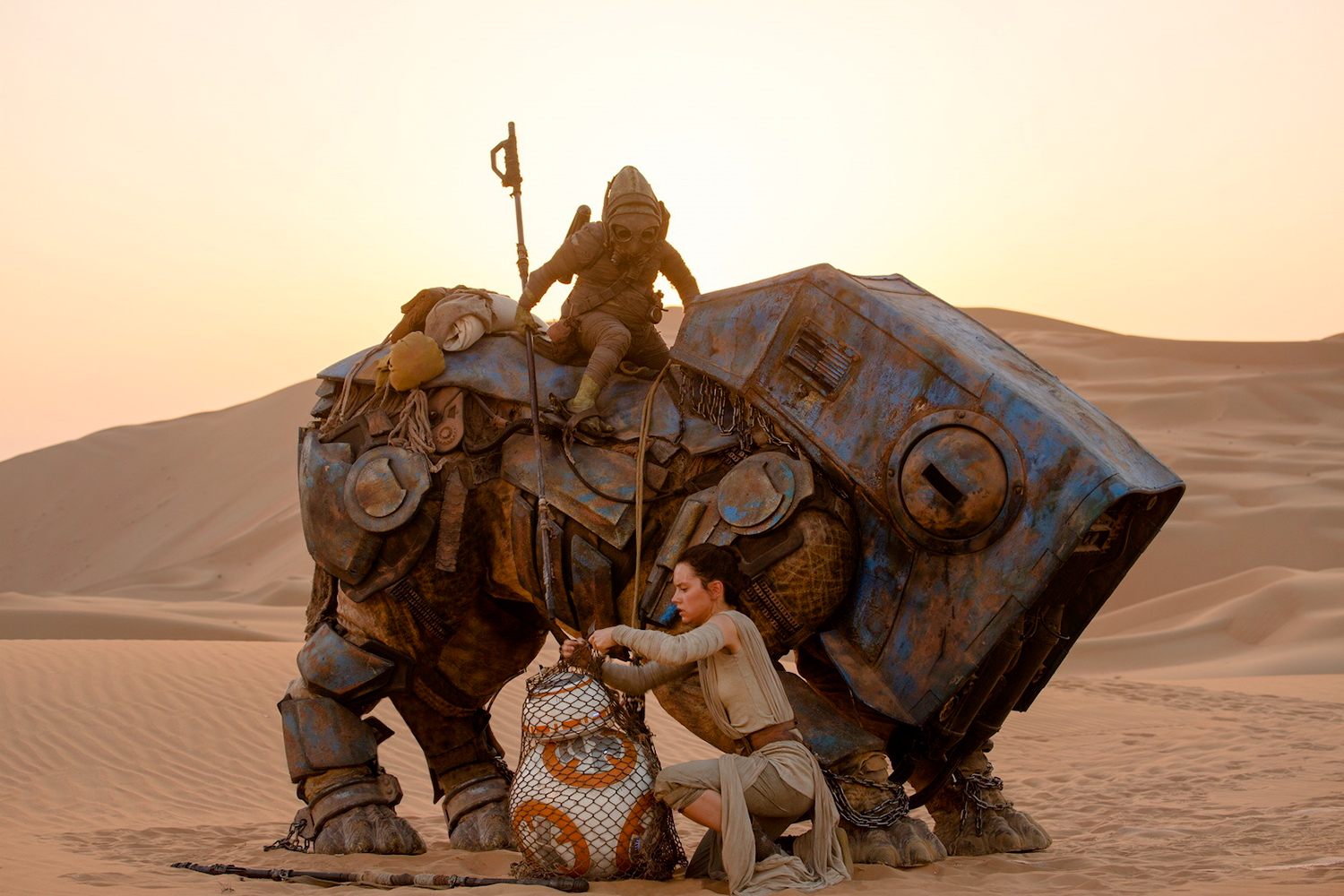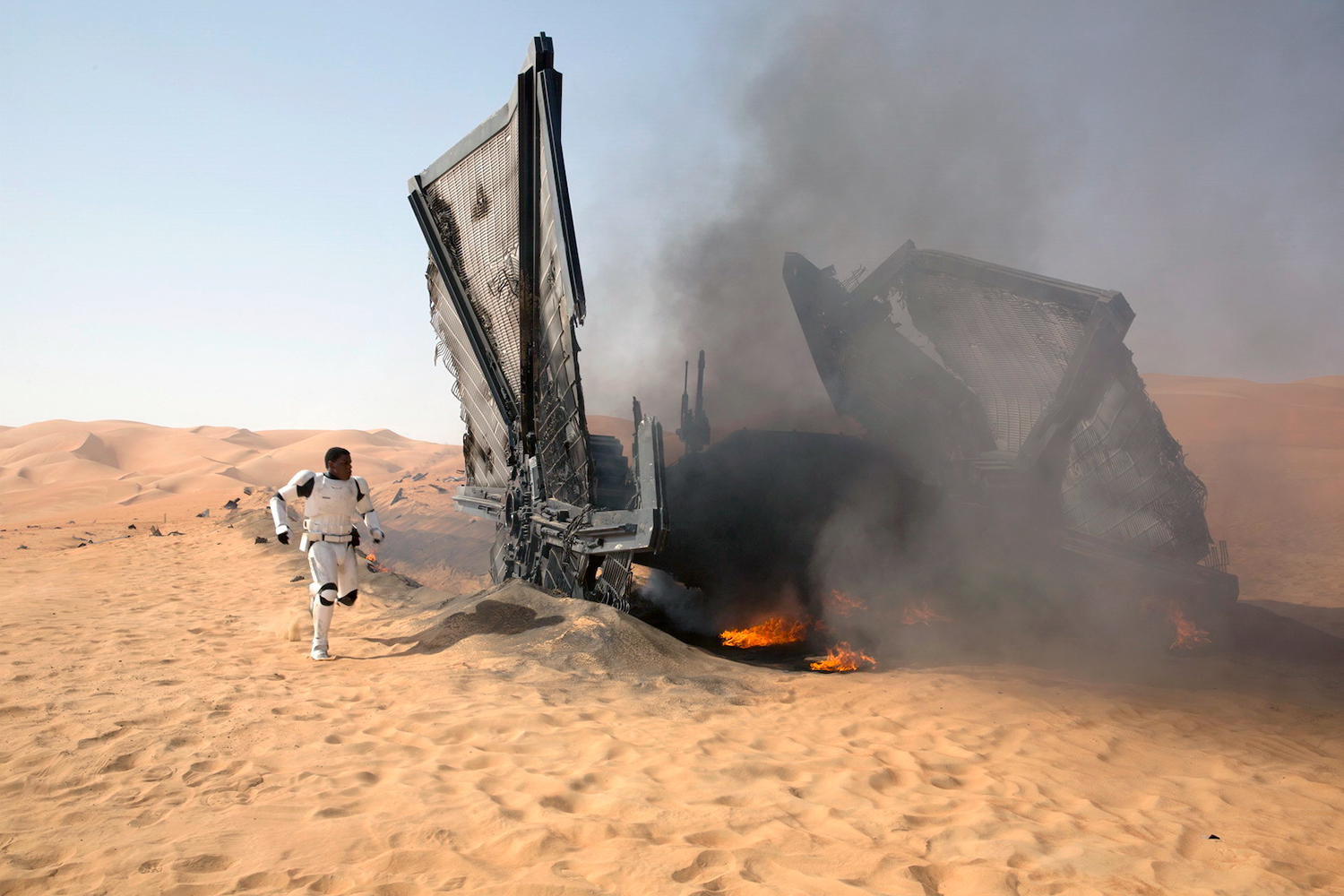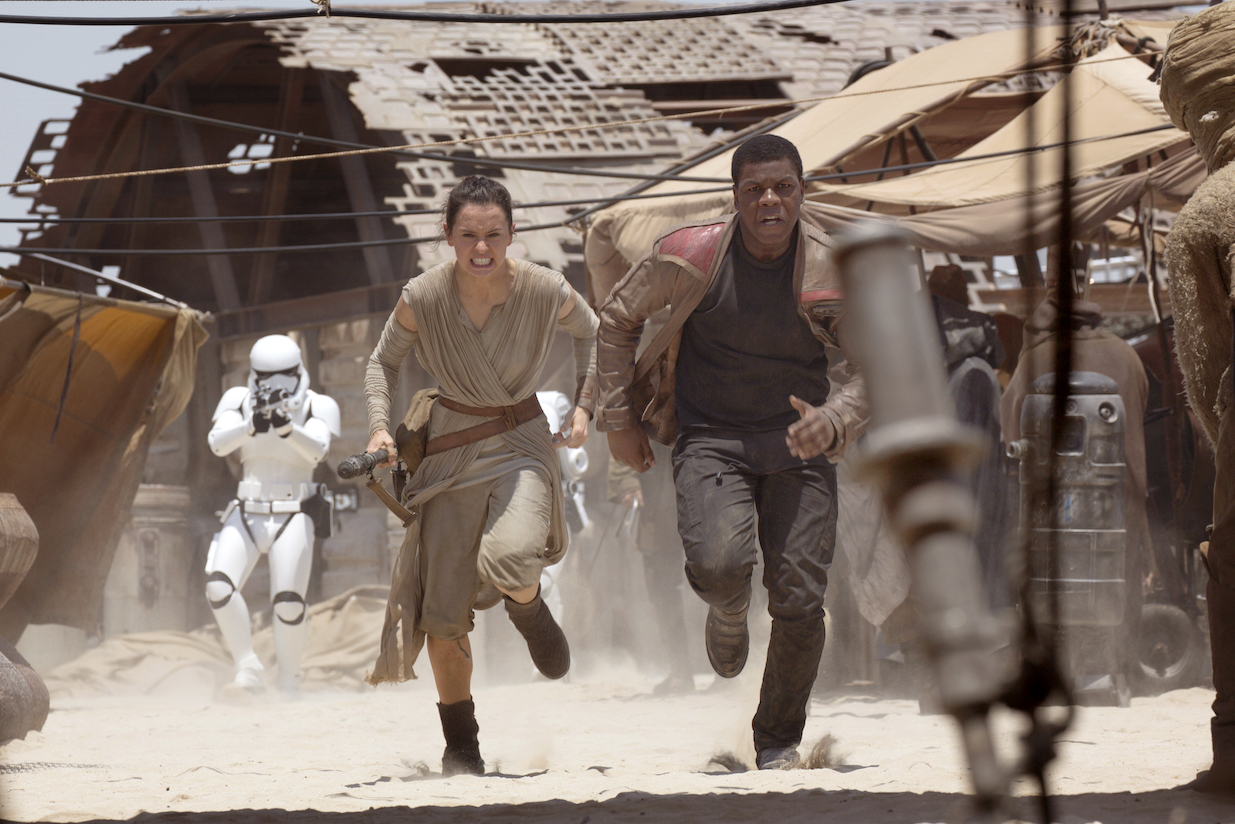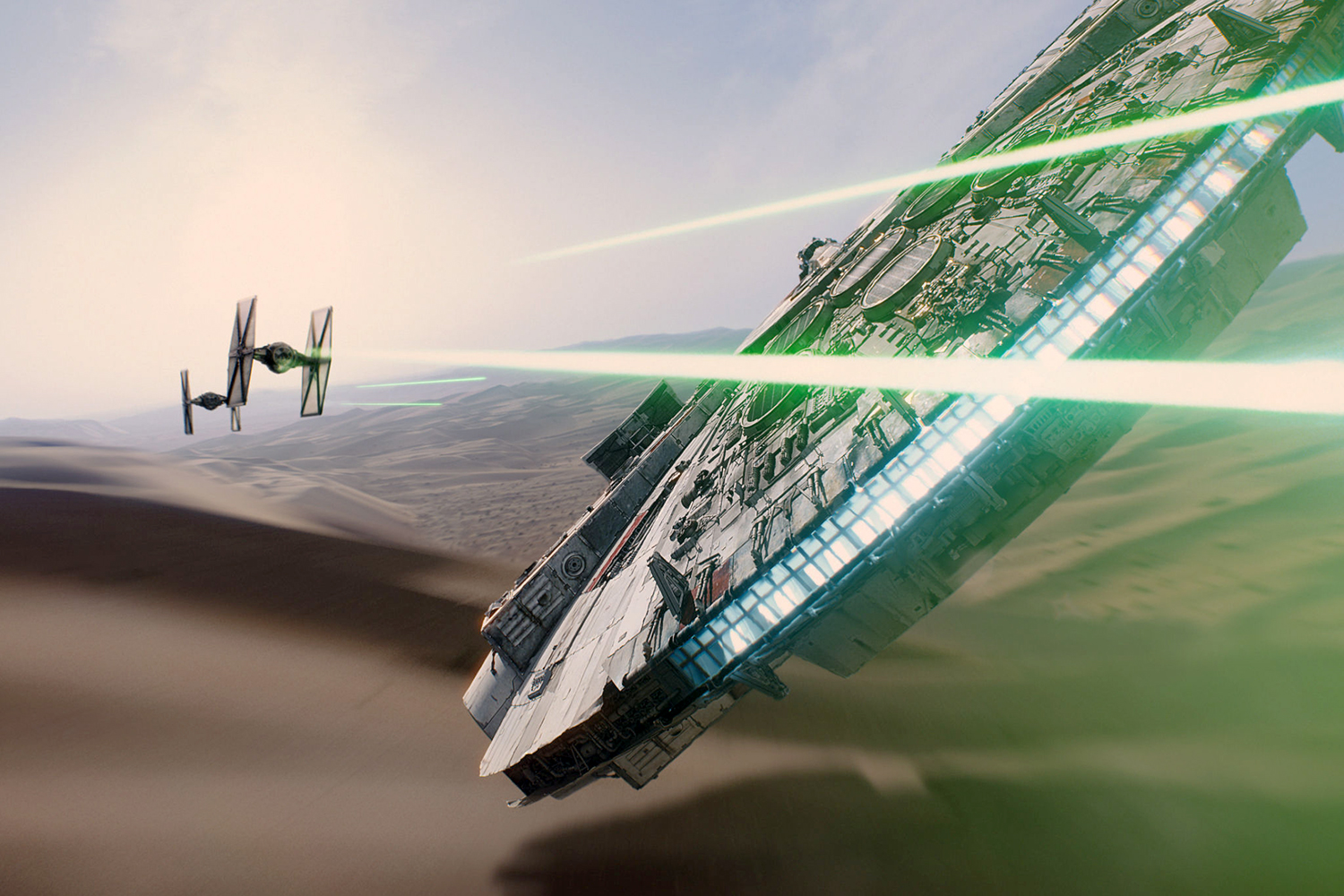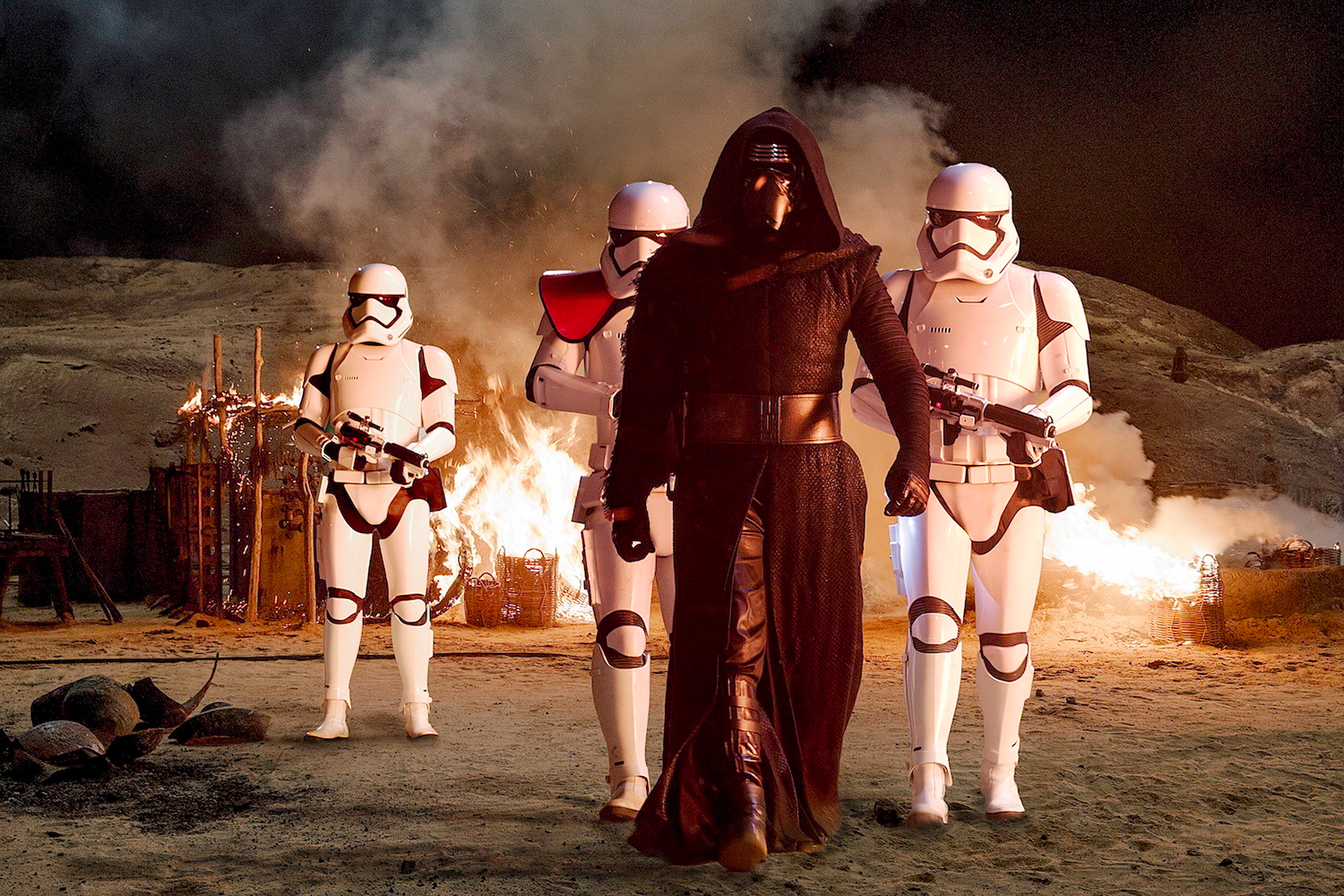Movie hype can be a double-edged sword.
It can raise expectations to such impossibly high levels that anything short of a cinematic masterpiece feels like a failure, but it can also whip you into the sort of optimistic frenzy that casts everything from the opening scene to the end credits in a rosy hue that renders criticism impossible.
To say that Star Wars: Episode VII – The Force Awakens arrives in theaters with a lot of hype is a massive understatement, but it’s also an important thing to consider when weighing what works and what doesn’t in the movie that’s likely to be the biggest blockbuster in Hollywood history by this time next year. Fortunately, there’s a lot of the former, and very little of the latter in director J.J. Abrams’ long-awaited seventh installment of the iconic sci-fi saga.
Set 30 years after the events of Star Wars: Episode VI – Return of the Jedi, The Force Awakens finds a new cast of characters caught up in the battle between the remnants of The Empire and the fledging Republic. The Rebel Alliance continues to fight the good fight as The Empire marshals its forces under the guidance of the mysterious First Order. As the galactic conflict rages on, an orphaned scavenger (Daisy Ridley) and a former Imperial Stormtrooper (John Boyega) become key figures in a galaxy-wide hunt for a map that could hold the key to tipping the balance between those who wield the mystical power known as The Force. Along their journey, they find both allies and enemies among the characters — both new and old — they meet along the way.
It’s no secret that The Force Awakens is intended to be a passing of the torch in the Star Wars universe from the veteran characters aged well past the prime of space adventures to a younger generation of ragtag swashbucklers, idealistic heroes, and sinister villains. While it would’ve been easy for the film to become the typical Hollywood origin story that gets bogged down in its own introductory elements and rolls the credits just as things get interesting, The Force Awakens deftly adds to the ongoing saga of the franchise while planting the seeds for what will almost certainly grow into fresh narrative threads.
Many of those aforementioned narrative elements are rooted in the film’s new characters, and both Ridley and Boyega appear up to the task of becoming the saga’s next generation of heroes. The same can be said of the film’s villains. The casting of Girls actor Adam Driver as the masked, lightsaber-wielding villain Kylo Ren once seemed like an odd decision, but in hindsight appears to be a particularly inspired choice for the role. In a franchise filled with memorable villains, Driver makes Kylo Ren more than a black-suited bad guy and adds a surprising amount of nuance to an otherwise terrifying villain.
For their parts, Ridley and Boyega — and to a lesser degree, the hotshot pilot portrayed by Oscar Isaac — carve out some nice niches for themselves in the Star Wars universe that avoid feeling forced. As with all the Star Wars movies (and most adventure films, for that matter), some reasonable suspension of disbelief is required to process some of the narrow escapes made by the characters, and the various talents they happen to have at just the right moments, but the story never shifts into full-on deus ex machina mode. The actors playing the characters make you believe in what they’re doing, and that’s good enough for most audiences.
Sadly, the ravages of time and galactic war have taken their toll on some of the franchise cast members who return for The Force Awakens. Abrams does a respectable job of honoring the characters — and the actors who played them — without slipping into simple fan service. Harrison Ford in particular finds the sweet spot between showing his character’s age and offering a nice reminder why smooth-talking smuggler Han Solo is such a beloved scoundrel.
The Force Awakens deftly adds to the ongoing saga of the franchise.
Of course, that’s not to say everything works to perfection in The Force Awakens. The film leans heavily on some set pieces that draw from the past a bit too overtly, occasionally to the point of feeling recycled. At various points, characters are introduced who seem to have some importance in the greater story, only to never be seen or mentioned again. Still, the flaws in The Force Awakens are far outnumbered by the many, many things the film does right — which include quite a few big surprises for audiences (as long as they can avoid spoilers).
Much like its underlying light-versus-dark theme, the success of The Force Awakens ultimately boils down to its ability to strike a balance: introducing the new while honoring the old, continuing the saga while creating a fresh story, mixing the right amounts of humor and drama, even finding the right proportions of practical and digital effects (another aspect of The Force Awakens that’s handled very, very well). They all factor into the film’s viability as the first step in what studios Disney and Lucasfilm hope to turn into a long (and profitable) cinematic journey.
And if The Force Awakens is any indication of what the rest of the rejuvenated Star Wars saga has in store for audiences, that journey is a trip worth taking every step of the way.
Editors' Recommendations
- Disney+ reveals the first trailer for Star Wars: Tales of the Empire
- The Acolyte’s first trailer embraces the Dark Side of Star Wars
- 5 sci-fi and action movies like Rebel Moon you should watch
- Like The Creator? Then watch these 5 great sci-fi movies
- 10 biggest sci-fi hits of all time, ranked by adjusted box-office gross

